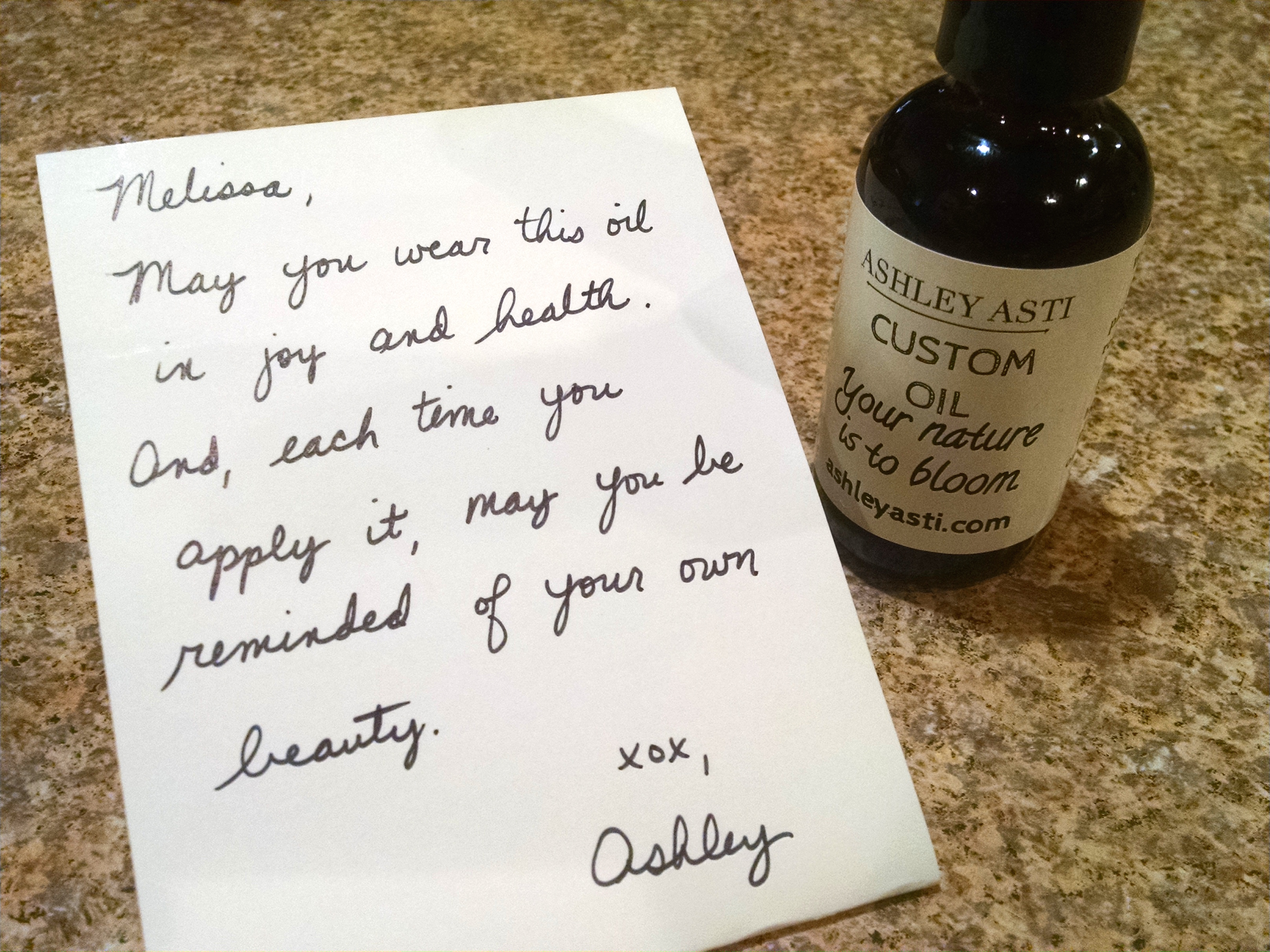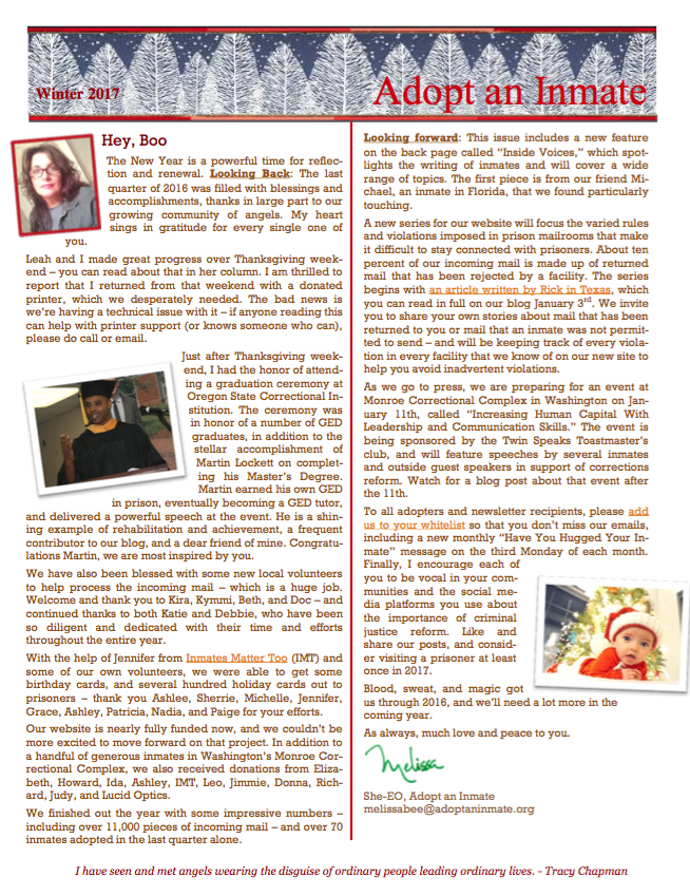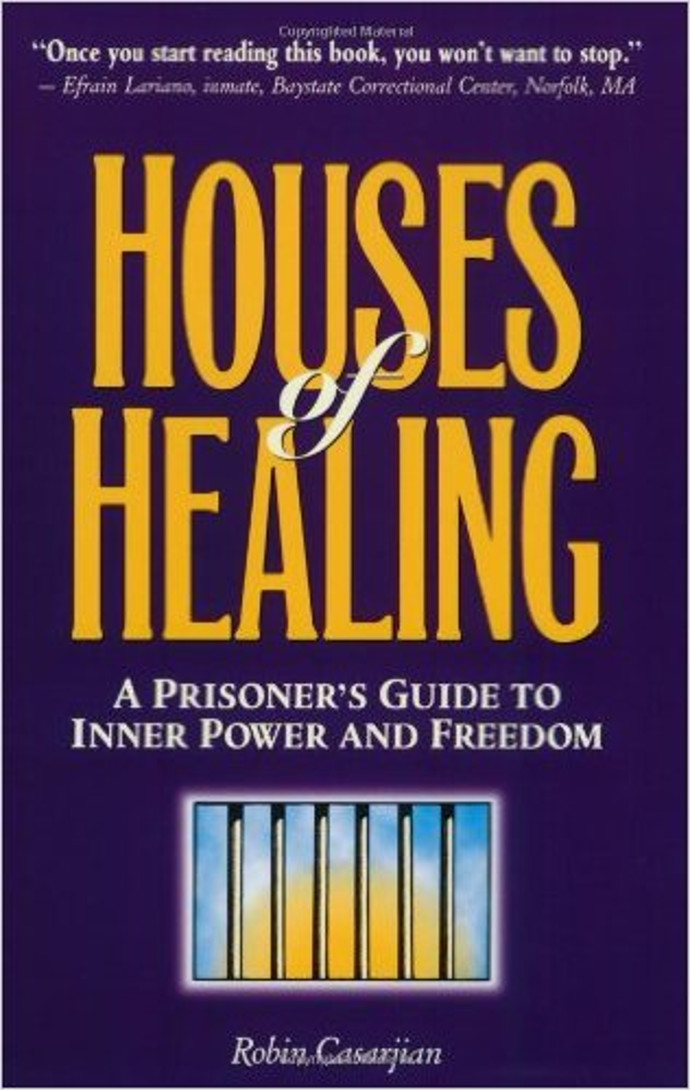
by Melissa Bee | Mar 15, 2017 | From the Staff
Regardless of the typical squabbles between siblings, my brother has always been someone I’ve looked up to — it’s even fair to say I have idolized him. (Except for the times I want to smash his face in, like all siblings do from time to time). Growing up, he was both the comic relief and the genius of the family. The class clown. Popular with teachers and students — though he didn’t seem to notice that. Every single one of my girlfriends had a crush on him (which continued after we became adults). He is the favored uncle to my kids. He’s HIGH-larious. Seriously — he’s Jerry Seinfeld-funny. He has the kind of talent as a musician that intimidates other artists. He has a photographic memory – I’ve never seen anything like it. (A friend was stunned when Rick described what was on page eight of a schematic he hadn’t seen in years). He is wrong so infrequently that it is super annoying. I mean come on! He’s impossible to argue with, which is usually why I want to smash his face in. I used to argue with him constantly. He’s my only sibling. When he and his wife bought property in Texas back in 2000, turning the talk of a long-distance move into reality, I couldn’t even speak the news out loud. It felt like I was losing my best friend. I thought it was the worst news ever.
It wasn’t. In the summer of 2013, our dad delivered the actual worst news ever. Rick had been arrested, because someone told a lie. A monstrous lie. In Texas, that’s a go-directly-to-jail card. Everything in my life is measured by that day — what happened before it, and what happened after it.
I wrote the true story below back in December of 2014, after a year and a half of the daily anguish every family member knows only too well when you’re seeing someone you love suffer unjustly.
And yet, one of the first things Rick said to me from a phone in Travis County Jail was, “There are a lot of good people in here. And a lot of sad stories.” In the midst of his own despair, he wanted to do something to help people — and Adopt an Inmate was born.
While, three and-a-half years after his arrest, we have adjusted to a “new normal,” and it helps Rick and the whole family every time we can share news that we’re helping more people — certain memories still feel like a fresh kick in the gut. This is one of them.
I hardly ever want to smash his face in any more.
Cards, Letters and Jail Shenanigans
It took four attempts to collect it from the jail. After a number of blatant lies and conflicting stories from a handful of guards and post officers, the bag was lost. We feared it had been thrown in the trash. On the third attempt to collect it, I was shouted at by one of the guards, who literally refused to hear anything I had to say.
Finally on the fourth attempt – I was shown some measure of civility by one guard, who informed me that the property had been located, and would be walked over to the video visitation building, where I was waiting for my last visit with my brother before I flew back home, and before he would be moved to prison. The guard who shouted at me exhibited great maturity when, after the bag was delivered, refused to hand me the bag even though it was six inches in front of her on the counter. She actually called another guard over (the civil one) to pick it up from in front of her and hand it to me.
This is what it’s like to try to get anything done for someone who is in jail. It is exactly how everything else has gone since this nightmare began. Save for a few angels, it is pure hell.
But wait, there’s more.
Because I was made to wait an hour and a half for the visit, even though there were over 20 —TWENTY! — available video booths and zero people ahead of me (they have perfected the art of causing families to suffer every possible unnecessary nuisance), I missed my flight. Then because of weather (now the landing time would be after dark), the connecting flight was first delayed, and then diverted, so instead of arriving home at six pm that day, I landed at an airport in a different city, and took a two and-a-half hour bus shuttle, arriving home at 4:00 the next morning.
Thanks, Travis County Correctional Center.

This bag of letters was my carry-on. I held on to that bag like it was made of gold, as if Rick himself were in there. I carried it with me through the airport to my connecting gate, clutching it until my flight finally departed. I read the cards and letters in the air, and wept quiet tears of both joy and grief, trying not to disturb my seat mates.
Among the letters were also notes from other inmates, that Rick would pass on to us so that we could contact family members and give them messages. There are many pre-trial detainees that don’t have someone on the outside with the resources to help them, so we tried to fill that gap when we could – but mostly we felt helpless.
Innocent until proven guilty? No. Not in this country. Unless you are wealthy, or have some substantial political clout, you will not be permitted to participate in your own defense. If you are charged – you’re going down.
This, and every other shenanigan we have been forced to go through, is exactly why we are starting a non-profit, to address these kinds of issues. These people have no lobbies, and thus no voices – their stories go unheard, their urgent needs unmet. That is not okay.
Look for news about our non-profit in the near future, and please continue to send cards and letters while we wait out this next chapter. We’ll get through it by focusing on this positive work, and looking forward to his release.
Trust me, there will be a big party. You’re all invited, and I can’t wait to see you there.

by Melissa Bee | Mar 13, 2017 | From the Staff
My brother is a fine artist, gifted in many ways which are all being wasted while locked into a broken system we could not save him from. His time could (and should) be used to benefit those around him – but instead, he is assigned janitorial duties.
It’s sad to think about all the locked up talent.
by Michael Henderson | Mar 2, 2017 | Inmate Contributors
When you finally acknowledge and really accept that you can do and be more than the limitations others have set before you, there are more worlds open to you, with understanding and growth that has no limits than you have imagined, right in front of you.
My Reluctant Ministry brings people into my life that I would not have otherwise been graced with and opportunities to help in ways I could never have guessed. When you think of ministry, you automatically think spiritual or religious. Here in America’s insides, people’s needs are a hands on effort because even those who seem to be caught in the maze specifically to be judged by the rest of us, are deserving of the grace that anyone deserves just by virtue of being a fellow human being. This effort sometimes requires me to focus more on legal, practical matters to help find ones’ way through the end of the maze. I have come across men who, in hopes to make it, will fake it.
My friend, whom I’ll call Dan, is someone I probably would have never met outside the gates. I’d like to try and fool myself into not having any responsibility for that fact, but the truth is we all have preconceived ideas about people places and things and we are sometimes caught up in our own maze of those notions. We’re motivated to change by things like fear, desire, need and sometimes imagination.
Dan came to me with the most sincere facets of all of the above and little direction on how to accomplish his goals. I was… well, reluctant. I have spent all my incarceration living in the law library and had accomplished some of my own goals and didn’t see being able to help this young man very much because of my preconceived ideas about the men I’m imprisoned with and my lack of vision for others. In the process of helping this young man learn how to defend himself from the treacherous penal system, I learned so much from him about myself that I actually consider Dan my friend. Something I would not have been able to do under any other circumstances because he used to be a racist. Self professed. He shared with me about the day he stopped being a racist. He was sent to medical by a Sergeant because of an infection that was oozing and painful. When he got to the clinic, there was a very sweet looking older grandmotherly type of officer as clinic reception and when he approached her desk she told him she didn’t care who sent him to medical that he knew he couldn’t come to medical without signing up for sick call and that if he didn’t carry his beggar black ass out of there she was going to hit the panic button and tell security he was coming after her, at which point he backed out and left quickly.
The very next day, the same Sergeant saw he was in the same condition and again sent him to medical. The same grandmotherly officer was there again but this time there was also a Practitioner there who saw the infection and immediately ushered Dan to the treatment area where he proceeded to treat him with utmost care and professionalism, tending his wound and making sure he had enough dressings and antibiotic cream to get him through the infection. Thankfully, Dan healed, in more ways than one, and he affected healing in me through the whole process.
You see, Dan is a black man, as was the grandmotherly officer that drove him away from the clinic in fear and humiliation the day before. The practitioner was white. Dan told me that day in November 2012, he stopped being a racist because he now realizes that the person behind the skin is what matters, not the skin.
When Dan came to me seeking help to understand the justice system, I was more than glad to help him learn, but I had my reservations. By helping Dan with his case, I was able to experience not only Dan’s learning and real heartfelt drive, but I realized the ugly truth was that I was more like the grandmotherly officer than the helpful medical practitioner and even though I never considered myself racist, that day I grew and healed and learned.
Even the fact that Dan and I have spiritual talks and share some reading materials, the true ministering came through in the practical hands on effort to help him learn worldly ways, while Dan taught me the ways of the soul. I now no longer look at a person’s outer appearance because I first am looking inside of myself to check my own place in the cosmos by ridding myself of those old preconceived notions. That may have been the day I truly stopped being racist too.
* With gratitude for Leah, who not only listens to me, but actually hears me, and suggested the title for my article – all my love.

by Rick Fisk | Feb 21, 2017 | Inmate Contributors
Hate medicine….
We watched him dying. Everyone on our wing had their own diagnosis.
“Cirrhosis.”
“It’s jaundice. Look at how yellow he is.”
“How can you tell? He’s hispanic.”
“Next time you get close to him, look at his eyes. They are yellow.”
“I bet he has liver cancer. Look at how skinny he’s gotten. If he weighs a hundred pounds I’d be surprised.”
Several of us wrote requests to medical. “You really must help this man.” Somebody took a guard quietly to the side of the dayroom after our requests went unanswered.
“You see that guy standing on the wall next to 101 cell?”
“Sure.”
“He’s dying. When you do an in and out, take a close look at him. He never goes to chow, his celly says he has chronic diarrhea. Somebody has got to do something for him. Medical is ignoring us.”
At first, our attentions were discreet. But later we openly made pests of ourselves, asking him daily if he needed help, if he was feeling okay. His stoic refusals led us to believe he was committing an agonizingly slow suicide. Finally, medical responded, though we were certain it was too late. He refused treatment time and time again. To the Warden’s credit (how word reached him nobody is sure), when he saw the man in the infirmary, he was having none of their official resignation.
“What are you doing for this man?”
“Nothing. He’s refusing treatment.”
“Oh, hell no! He’s going to the hospital. Now!”
That was the last we saw of him. We’ve heard nothing since about whether he lived or died but we kept him in our prayers.
It’s probably like this in other states but certainly in Texas, the prison system is loathe to even hint that they employ people who care about inmates. Thus, every nurse station is labeled an ‘infirmary,’ every form requesting medical care is a ‘sick call,’ and you pick up your medication at the ‘pill window.’ Outside. Rain, snow, sleet, or shine.
To say that prisons do a poor job of delivering health care is a gross understatement. Prison Legal News has been at the forefront of reporting and litigation on behalf of inmates who’ve suffered medical malpractice. You can find, in their archives, article upon article describing lawsuits against prisons which have neglected inmates to the point of serious injury and death. In many cases, suffering could have easily been prevented.
A libertarian-minded person might argue that government hires the least qualified since they pay below-market labor rates; look at the VA for instance. There may be some truth in that. Yet, incompetence alone can’t account for such widespread malpractice. Diseases that are routinely vanquished outside prisons are rampant and life-threatening inside them. When is the last time you heard of someone dying of a staph infection or sepsis in a hospital? It happens rarely because staph and sepsis rarely go unrecognized or untreated. In prison?
“Here’s an Ibuprofen. Go back to your cell.”
And that is after one has waited up to 72 hours for the infirmary to respond to your sick call request.
This indifference isn’t because medical staff are incompetent but because they’re trained to be belligerent. That sounds like hyperbole, doesn’t it? it’s not.
Not all belligerence leads to injury or death. Most refusals to provide care merely result in dramatic cost savings. Let’s face it, garden variety colds and flus resolve themselves. Nobody dies. They’re uncomfortable is all. Inmates will be forced to work anyway, threatened with disciplinary hearings which can jeopardize parole chances, a win-win for prison wardens.
Not all malpractice results in legal action. Very few inmates have the resources to litigate a malpractice suit.
An inmate on my unit, we’ll call him Bob, was diagnosed with brain cancer his last time down. He was given an emergency parole but was convicted of another DUI and sent back to prison. After arriving, he was transferred to the Mumford Unit to have his tumor removed. The surgery required that doctors cut away a piece of Bob’s skull. Once his tumor was removed, the piece of bone that had been cut away was fastened back to his skull using four screws and two metal plates.
About five months ago, Bob showed me a two-inch piece of bone that had pushed itself through a wound in his scalp. Also pushed out of his scalp was a titanium screw. Alarming to say the least. Bob put in a sick call request and the nurse was concerned enough to schedule a trip to the neurologist.
Going to see a medical specialist in a Texas prison is an ordeal. TDCJ does not have the resources to employ specialists at every unit. Depending on the type of specialist, an inmate might have to be transported hundreds of miles by bus, cuffed to another prisoner. In the worst case, you’re chained, shackled and hog-tied. Prior to travel, you’re required to pack all of your property and inventory it. Then at 6 AM, you’re taken to a holding cell where you can wait up to four hours for the bus to arrive.
Bob was shackled and hog-tied on his trip to the neurologist. Not once, not twice, but three times was he sent, each trip excruciating and humiliating. On the third trip he was able to converse with the specialist.
“Bob, I have good news and bad news.”
“Okay, what’s the good news?”
“The good news is you’re cancer-free. Your MRIs are negative. No sign of cancer at all.”
“That is good news! What’s the bad news?”
“We can’t see any sign of missing bone, nor can we find any of the screws we used to re-attach the piece we cut out during your surgery.”
“Wait, what?”
“They aren’t showing up. I can’t explain it really.”
Bob literally has three screws loose in his head somewhere. Unless he lodges a serious complaint, the medical professionals obligated to care for him have officially washed their hands of him.
Perhaps you’re still not convinced that belligerence is cultivated. TDCJ contracts its medical care to a corporation called UTMB* Correctional Managed Care, at several of its units. Outsourcing indemnifies it from medical malpractice lawsuits. It also jeopardizes its reputation for being tough on inmates by using a company that has the word ‘care’ in its name.
Another inmate at this unit is suing TDCJ and UTMB for injuring him and neglecting to treat his injury, namely a separated shoulder caused by an officer’s assault. The suit went to trial (Charles R. Adams v. Lieutenant Bailey, et al., – Civil Action No. H:12-CV-02520). The transcript of the trial contains UTMB’s admission of professional belligerence towards inmates.
Dr. Erin Jones, who interned as a psychiatrist and has not even one hour of experience in osteopathy, was called as an expert witness by UTMB’s lawyers. In spite of her lack of experience, she was allowed to give testimony on Adams’ shoulder condition. More interesting was the beginning of her testimony on behalf of the defense.
Q: Then when you went to work for UTMB in the correctional managed health care system did you receive any kind of training?
A: Yeah, we had training that’s called NEO.
Q: What is that?
A: New Employee Orientation. And it’s — working in corrections is very different from working in free-world medicine. And so we had to learn —
Q: Explain to us why. What is different about it?
A: Well, there is a lot more patients that want something for secondary gain. There is — basically eighty to ninety percent of our patients are either lying or exaggerating on their symptoms to try to get something. [Treatment, perhaps?]
And then, my job every day — and it’s a challenge — is that I have to find that ten to twenty percent that are really sick and take care of them because they need my help, you know. But then, you know, I don’t want to waste my time on something that’s not real, you know.
There you have it. A UTMB employee admits, under oath, that UTMB trained her to treat up to 90% of her patients as if they are lying. It’s truly absurd for Dr. Jones to complain that her job is so difficult. Imagine coming home from work and reporting that you had a terrible time disregarding 90% of your duties. Whew!
“That ten percent I did was hard but I enjoyed doing it.”
Jones offered no empirical evidence to support the claim that such a high percentage of inmates are lying and I suspect that its because UTMB doesn’t offer any either. Plain, common sense suggests the claim is a fabrication. Texas inmates are charged a $100 annual co-pay for any non-chronic care (even though they are not paid for their work). Chronic care is care for issues such as diabetes, cancer, or pre-existing conditions discovered during prisoner intake. Why would an inmate lie ‘to get something’ when it costs them $100 to do so?
It’s preposterous to conclude this unless you are interested in getting paid for work you refuse to perform. Planned, systemic belligerence. It’s not health care, it’s not medical practice, it’s hate medicine. No amount of honey can make it palatable.
*University of Texas Medical Branch
TDCJ Inmate
by Eric Burnham | Feb 20, 2017 | Inmate Contributors
We’re pleased to introduce a new contributor to our blog, Eric Burnham.
My name is Eric Shawn Burnham. I was born April 21, 1979 in Las Vegas, Nevada, but I grew up in  Oregon and California mostly. I came to prison in 2001, and I’ve been at EOCI ever since.
Oregon and California mostly. I came to prison in 2001, and I’ve been at EOCI ever since.
When I was 21-years-old, I took another man’s life while intoxicated, and I was given a 25-to-life sentence in prison. I deeply regret the actions of my youth, and I’m ashamed of the lifestyle I was living that led to the death of another human being at my hand. But as much as I want to, I cannot change the past. I can use it to shape my future, however.
In 2003 I earned my G.E.D., and in September 2015 I earned a Bachelor of Arts in Counseling, graduating Summa Cum Laude (3.98 GPA). By mid-2017 I will have earned my Master’s degree in Counseling. In addition, I’m accumulating CEUs (Continued Education Units) in order to meet the requirements for state certification as an alcohol & drug counselor. (I’ll still need 4000 hrs. of clinically-supervised counseling after I’m released.) My education is important to me because I’m dedicated to helping young people avoid making the same mistakes I made.
I work as a tutor in the G.E.D. program here at the prison, and I love my job. It doesn’t pay well, but it gives me the opportunity to help young people and practice my skills.
Personal growth, to me, means becoming the person I was designed to be. I’m not too sure where the balance is found between nature and nurture in the formation of my spirit as a unique human being. I do know, however, that I’m just one incarcerated man trying to overcome my past mistakes and make a positive impact on this crazy world. I kind of think that’s what life is all about: taking the bad and using it for good.
Finding My Purpose in Prison by Eric Burnham
Can the prison experience be good? Inmates are crammed into small cells or overcrowded dorms like sardines, surrounded by some of the most difficult personalities on the planet, and ordered around by self-righteous, often power hungry and abusive authority figures. The cramped living quarters are physically uncomfortable. The lack of privacy is emotionally exhausting, and the empty nature of prison friendships is socially unfulfilling. The boredom is mind-numbing. The loneliness can be crushing, and the inflexible power structure imbeds anger into one’s personality. The incarcerated person is completely isolated from loved ones — few things hurt more than knowing your friends and family have moved on without you. Perhaps the hardest pill to swallow, however, is knowing this is all self-inflicted. After all, if you admit it’s your own fault, you are then responsible.
There is no escaping the fact that I’m responsible for an incredible amount of devastation. I’ve brought suffering to my victim, my family, and myself; and I cannot move forward with my life until I acknowledge that. But when I finally realize I am the problem, something miraculous happens: I also realize I can do something about the problem. I find purpose. The time I’m serving in prison becomes an opportunity to change how I view the world, how I treat others, and how I meet my needs. However, I cannot accomplish that on my own. I need God’s help. But if I’m committed to learning how to become a better man, God has promised to help. “And we know that for those who love God, all things work together for good, for those who are called according to his purpose,” (Rom. 8:28).
God is interested in transforming me into an instrument of light, and He will use the difficult experiences of incarceration to bring about changes in me that I cannot completely understand. But I’ve got to do my part. I’ve got to live like I believe it. How I view my situation will determine how I live while I’m here. I am not the victim. The selfishness of my past put me here. But if the selfish deeds of my past led to my present incarceration, what might my present positive actions lead to in the future… if I give my present to Him… on purpose?

by Melissa Bee | Feb 18, 2017 | From the Staff
We are so pleased to partner with Ashley Asti. Ashley creates organic custom skin and body oils to honor the skin and soul, with a commitment to ethical creation, sustainability and wellness. She is also one of our adopters.
Each month, Ashley Asti donates a custom oil “to an individual who deserves access to loving self-care, nourishment, and celebration but who may not be able to afford one of my oils on her or his own.”
I was thrilled and grateful to be the recipient of my own custom-made oil this month. Along with the oil, Ashley provided a lengthy description of every ingredient in the bottle and its function.
In Ashley’s own words:
I set out to write women who are incarcerated because I wanted them to know that they are not alone. I wanted them to know that they are loved and supported and that their stories and lives matter because, the truth is, we heal with love, not isolation. But what I’ve gotten in return is a gift far greater and far more precious than any I can offer.
The letters these women, these now friends, send me are lessons in life. I am moved by the strength they hold, the endurance they convey, the powerful rumblings of faith that seem to lift themselves up off the page. These women are my sisters in spirit, guiding me.
I stand with Adopt an Inmate because caring about and respecting all living beings matters, no matter who we are or what we’ve done. Because, in truth, we are destined to bring ourselves down until we know that dehumanizing one dehumanizes all. Bars, isolation, and violence are no longer the answer. We must find better ways to heal and co-create justice.
See these additional worthy organizations that Ashley partners with.

by Melissa Bee | Jan 5, 2017 | From the Staff
This publication was created for you – family members, friends, and advocates of prisoners. In each issue you will find useful resources for and from inmates; artwork, stories, recommendations from both adopters and adoptees; and news from the staff. Don’t forget to print and send a copy to your inmate loved one. We welcome your feedback and comments.
Enter your email in the sidebar to the right and receive each new issue in your email.
Click on image below for full PDF.

by Rick Fisk | Jan 3, 2017 | Inmate Contributors
People hate us. It sounds melodramatic, but it is true nonetheless. We’re hated by each other, by people on the outside, and by people working on the inside. By ‘us,’ I mean incarcerated persons. Offenders, inmates, convicts, prisoners. And there are people who make it their mission in life to let us know that hatred is all we deserve.
An inmate can be persuaded otherwise through cards and letters. Phone and visitation are also effective ways to do this, but it all starts with mail. You can’t visit me or receive a phone call until one or two letters pass between us. Therefore, those who staff prison and jailhouse mailrooms have the power to wreak havoc on an inmate’s psyche. The mailroom is the hub of most love entering or leaving prison. Limit mail? Limit hope.
This isn’t lost on people working in mailrooms nor those who make rules and regulations governing mail delivery. Some examples:
Stickers – Many prison mailroom employees around the country believe stickers are abhorrent. It is unclear why adhesive is so detested. Prison mailrooms consider it so dangerous, mail will be returned to sender if any adhesive-backed material is attached anywhere on a piece of mail – including an address label. It is a wonder why stamps exempted from the no-sticker rule.
Pictures – There is a major industry which supplies provocative photos to prison inmates. Inmates pick from proof sheets supplied by various companies and take their choices to the mailroom when they are ready to order. Personnel review photos after they arrive to ensure they aren’t too revealing. They will also carefully scan any photo sent by family members. An inmate I know was told that a picture of his four-year-old daughter had been rejected because she was flashing a gang sign. He later found out she was holding up a peace sign.
Address rules – Letters from prison require complete return addresses in case they contain threats or illegal instructions. The USPS doesn’t care as long as the ‘To’ address is deliverable. I once absent-mindedly omitted the city and zip code of the return address on a letter. Rather than add this to the envelope, a ten-second operation, the mailroom employee grabbed a carbon-copy form, filled out the violation details, stapled it to the envelope, and sent it back for correction. After I completed the missing information and dropped the letter back into the mailbox, it was rejected once more (in triplicate) because I had used an abbreviated first name (Rick, instead of Richard).
Handmade items – Some mailrooms will reject homemade cards – something children love to make for loved ones in prison. An inmate on my wing needed to mail a large drawing but couldn’t afford the 8″ x 15″ envelope from commissary. He made his own envelope. The mailroom rejected it, claiming that the envelope “couldn’t be properly inspected.” Someone donated an official envelope and helped transfer the stamps from the rejected envelope. Technically this was also a rule violation. Inmates aren’t allowed to give commissary items to one another. Its considered extortion. Don’t give a friend a stamp or an envelope — it leads to rape. Or so one would think.
Stationary – Families in Texas were once able to send their incarcerated loved ones writing pads, pens, pencils, and even stamps. No longer. Other states have followed suit and force inmates to purchase stationary at inflated prices.
Postage – Commissary sells various stamp denominations but nothing else that might be useful. For instance, USPS offers a flat rate box which is economical — compared to stamps — if one needs to send home books. Because mailrooms are notorious for banning books, inmates often have to pay return postage for a rejected book. Not only will the mailroom refuse to sell you a flat rate box but they will also inflate the number of stamps required to send bulky items. Because they can, prison scum.
Eff Ewe – Maine recently tried to ban all non-legal mail to any of its prison inmates. Only judicial notices and legal correspondence would have been allowed. If the people of Maine hadn’t stopped the proposal, I have no doubt that many other states would have done the same. They may even yet try.
There are some reasonable rules regarding mail delivery which aim to ensure prison security, say, don’t send explosives or metal files through the mail. Yet, when you look at many rules and more importantly, the way they are enforced, it’s obvious that safety is merely a lame excuse offered for efforts to drain hope from the incarcerated. On its face this seems odd, doesn’t it? Why would prison officials want to squash an inmate’s hope? Because they don’t know who they’re supposed to serve. If they were intent on serving society, they would turn out hopeful, educated individuals who are ready to lead positive, productive lives. Instead, they make decisions which tend to embitter and degrade their charges— the very thing which leads to recidivism— costing society dearly.
Of course, not everyone can be educated. Not everyone can be turned from their anti-social behavior. Certainly though, belligerence and hatred greatly lowers the odds that one will leave prison better than when they entered.
The prison mailroom should be a conduit for love and hope and it is in many cases. It could be more, and you can be a part of that more if you’re on the outside reading this.
You could adopt a inmate, for instance. If you’re so inclined, you could also help by raising awareness about spiteful prison mail policies. Share this. End hateful prison mailroom practices.
Rick in TX

by Martin Lockett | Jan 3, 2017 | book review, Inmate Contributors
Initially when I began reading this book, I thought it was going to give me all the reasons why I needed to change my thinking (as an inmate), yet offer not much in the way of breaking down how I could do it — thankfully I was wrong! Houses of Healing is a remarkable guide on how one can truly delve deeply within themselves to peel back the many layers and discover why they are who they are and how they can begin to emerge into the person they know they can become.
This book’s author has created and taught a well-known program within prison walls for over the past two decades. Through this program, countless inmates have come to discover their true selves, inner passions, and potential by first confronting the pain and turmoil they suffered as a child and slowly but surely learning how to work through it. You might be thinking this could only happen with a therapist right there to walk you through such a tumultuous journey — I thought the same. However, Casarjian composed this book to act as a surrogate counselor, walking with you every arduous step of the way, ultimately leading you to a place of healing and self-discovery.
She uses a psychoanalytic approach (focused on tapping into one’s unconscious thoughts and influences that have, unbeknown to them, guided his/her behavior) to bring about this therapeutic breakthrough, whereby the “Inner Child” is the point of reference she asks her readers to get in touch with. The Inner Child, she suggests, resides deeply within all of us and, for prisoners in particular, this Inner Child’s unresolved conflicts that took place decades ago is often at the root of our self-destructive (i.e. substance addiction, violence, criminality, etc.) behavior. We are unable to change such embedded patterns of behavior without first getting in touch with the Inner Child that we’ve “buried” as a means to protect him or her — ourselves.
I read this book with an open mind, allowing the concepts and teachings to sink in. At times I wanted to disregard what she was saying, or dismiss what she was asserting as not applicable to me, but then I realized this was yet again a defense mechanism I was trying to use to protect my Inner Child. When I mentally let my guard down and absorbed what was being said, I noticed how stirred up inside I became and how some discovery and healing was happening as a result. When you read this book and instinctively find yourself shutting down, press on harder. There’s a reason you are having that reaction; chances are it’s because what is being said is exactly what you need to hear and apply to your own life.
Houses of Healing is a highly respected and recommended book, especially by those who have a stake in correctional rehabilitation (i.e. educators, counselors, support group facilitators), namely inmates looking to take their lives in a new direction. This may very well be your guide to truly coming to understand why your life ended up where it did and, more importantly, how you can begin to change both your long-held thoughts and harmful behavioral patterns. If there were one book I could recommend to anyone in prison who is looking to understand why they may have made a series of bad choices (without even thinking about it) that landed them in prison, are tired of living that way and wish to change, this would be that book. Give it a try: you won ‘t be sorry you did.
by Melissa Bee | Dec 14, 2016 | From the Staff
This month at AI we’re coordinating with many of our angel volunteers to get holiday greetings out to prisoners all around the country.
Thanks to everyone who is helping in this effort, including Jen at Inmates Matter Too (and her volunteers), and many of our adopters, including our friend Ashley Asti (visit her shop for organic and ethical skin care products this month, and 20% of your purchase goes to charity).






 Oregon and California mostly. I came to prison in 2001, and I’ve been at EOCI ever since.
Oregon and California mostly. I came to prison in 2001, and I’ve been at EOCI ever since. 



